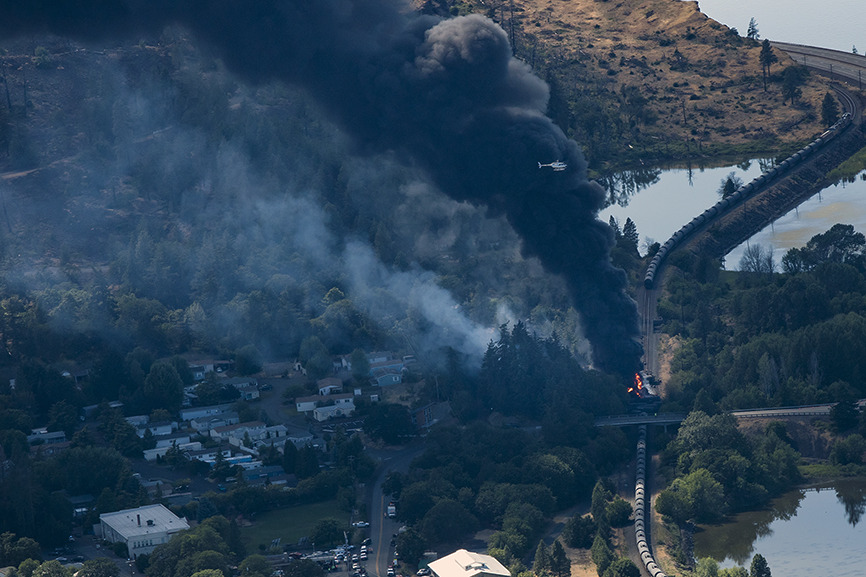Contact: Michael Lang, Friends of the Columbia Gorge
(503) 490-3979 | michael@gorgefriends.org
The Wasco County Planning Commission voted 5-2 yesterday to approve Union Pacific’s rail expansion in Mosier. The decision comes less than four months after a Union Pacific oil train derailed in Mosier and burst into flames. Earlier in the hearing, a motion to deny the application failed by a 3-4 vote.
The Planning Commission removed or modified several conditions of approval that could have lessened the project’s impacts to Tribal treaty rights, river access, recreation, air quality, water quality, and scenery within the Columbia River Gorge National Scenic Area. In particular, the planning commission voted to remove limitations on the number of trains per day and a requirement that coal cars be covered to avoid polluting Gorge lands and waters with coal dust. At least three times, Wasco County Planning Director Angie Brewer warned the Planning Commission that removal of these conditions of approval would cause the project to violate Wasco County’s National Scenic Area ordinance.
According to rail traffic experts retained by Friends of the Columbia Gorge, the rail expansion project could result in a major increase in rail traffic and oil trains through the Columbia River Gorge National Scenic Area, with the number of trains increasing by 45-52 per day. More about rail expansion impact study
The elephant in the room was the likely increase of large “unit” trains carrying crude oil and the fact that Mosier was the site of a fiery oil train derailment on June 3 that spilled 42,000 gallons of crude oil, with burning oil and toxic fumes that caused evacuation of the town’s residents.
“It is appalling to have a rail expansion approved on the very site where an oil train disaster just happened,” said Kevin Gorman, Executive Director of Friends of the Columbia Gorge. “The approval of this permit ignores the concerns raised by local elected officials, Gorge residents, and our members. This project puts Mosier and the entire scenic area at further, unnecessary risk.”
The Federal Railroad Administration (FRA) issued a report finding that Union Pacific caused the accident by failing to maintain its tracks. Union Pacific has a poor safety record compared to the national average for railroads. The FRA reports that Union Pacific has more rail accidents per million miles traveled than the national average, more derailments per accident, and more accidents caused by failure to maintain its equipment. Link to FRA Report Union Pacific safety analysis

